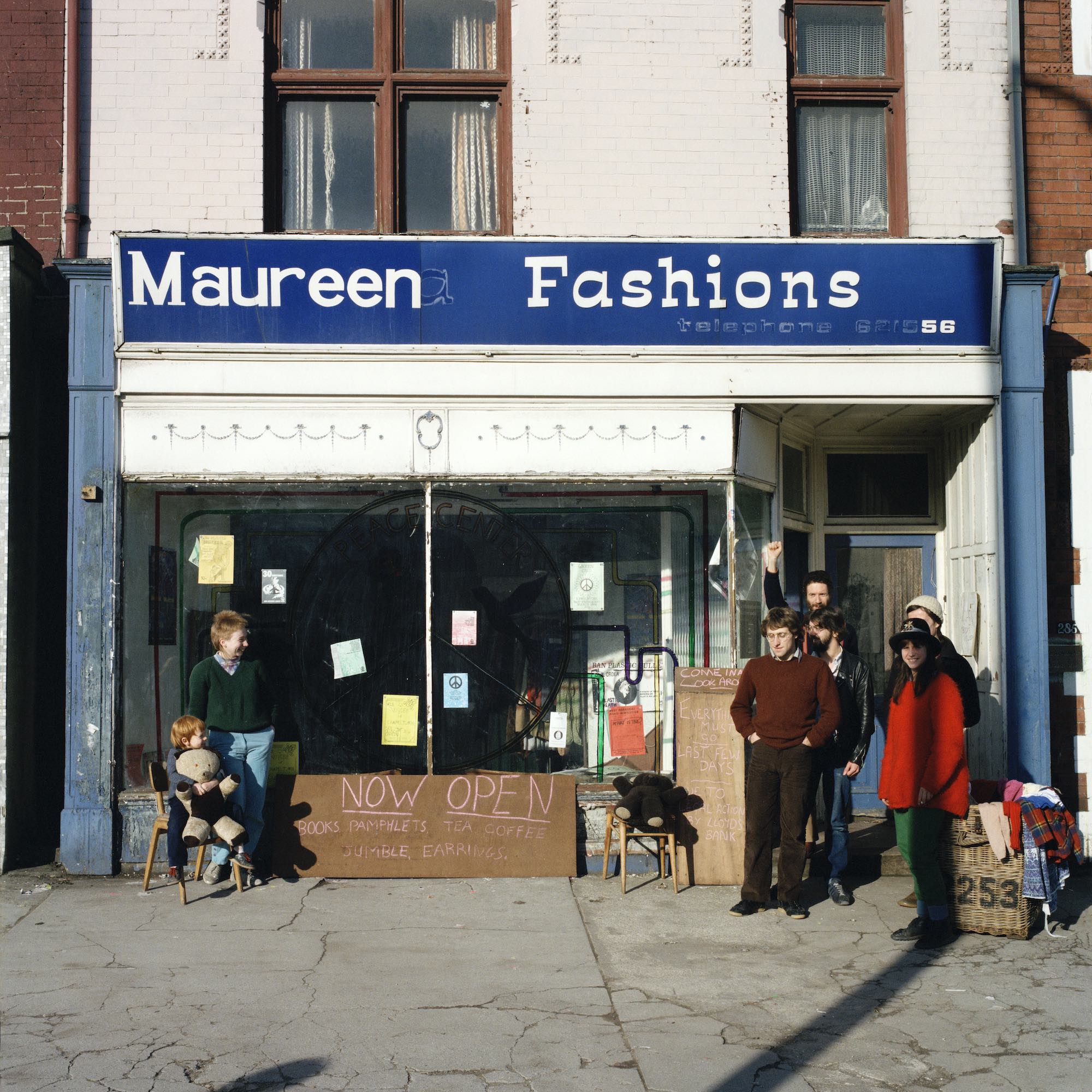Bleak and beautiful: a visual history of Leeds
- Text by Zoe Whitfield
- Photography by Peter Mitchell

“They’re not really nostalgia and they’re not really charming,” says Peter Mitchell, assessing his images of Leeds, a city he’s been photographing for over 40 years. “But people do identify with them.”
Arriving in 1972 from London where he studied at Hornsey College of Art – he’s originally from Manchester – the photographer got “stuck” in Leeds while visiting friends in the city. He quickly found a flat in Chapeltown, where he still resides today.
Working various jobs, it was a stint driving trucks that first led him to explore the city’s landscape and establish his distinct visual perspective. Initially taking on photography as a vehicle for silk screen printing, in 1979 he exhibited his pictures at Bradford’s Impressions Gallery. The show, titled A New Refutation of the Space Viking 4 Mission, was the first exhibition of colour photography at a British photographic gallery by a British photographer, and was lauded by his contemporary Martin Parr.
“It coincided, just about, with Britain starting to appreciate photography,” Mitchell says today. “It’s always been backward – nothing like America or Europe – but the arts council started taking an interest in photography. They actually set up a staff and handed out bursaries.”

Queens Road LS6, Hartwell terrace

Roundhay Road
His practice has continued in much the same vein over the last four decades, studying the city and shooting buildings of interest (frequently rundown and close to destruction), alongside other work. Released this month, new book Early Sunday Morning is perhaps the biggest Peter Mitchell volume to date, and highlights the personal framing of his observations of the city.
Named by his co-editor John Myers in reference to the Edward Hopper painting of New York in 1930, the book is a considered portrait of the city featuring close to 100 images in full colour. “The colour of Leeds used to be black because it was so industrial,” he says. “They didn’t start cleaning it up until halfway through the ’70s, and it didn’t look right somehow.” In his images, any bleakness is softened with bright skies and pops of colour courtesy of painted window frames.
“It was fast, there were whole terraces demolished in a day,” he explains of how the images, shot during the ’70s and ’80s, took form. “I made a note of things because I would think, ‘that looks incredible but it would look great if the windows were smashed’. They were sort of spontaneous, but I did a lot of waiting, going there morning and afternoon. I suppose one of the universal things I saw about them, was all these places were vulnerable, they weren’t going to be there for much longer.”

Cloth Hill street

Hyde Park Corner

Alea Stony Rock Westlock terrace

Union Cross between Stocks Hill and Crab Lane

Meanwood road off Cliffdale road

Burley Road

Chapeltown Road
Early Sunday Morning is out now on RRB books.
Enjoyed this article? Like Huck on Facebook or follow us on Twitter.
Latest on Huck

Analogue Appreciation: lullahush
Ithaca — In an ever more digital, online world, we ask our favourite artists about their most cherished pieces of physical culture. Today, it’s Irish retro-futurist lullahush.
Written by: lullahush

Spyros Rennt captures connection and tenderness among Berlin’s queer youth
Intertwined — In the Greek photographer’s fourth photobook, he lays out spreads of togetherness among his friends and the German capital’s LGBTQ+ party scene.
Written by: Isaac Muk

The rebellious roots of Cornwall’s surfing scene
100 years of waveriding — Despite past attempts to ban the sport from beaches, surfers have remained as integral, conservationist presences in England’s southwestern tip. A new exhibition in Falmouth traces its long history in the area.
Written by: Ella Glossop

Plestia Alaqad: “Journalists should focus on humanising people”
Huck’s April interview — Having become one of the most crucial and followed voices from inside Gaza in the aftermath of October 7, the award-winning author and journalist is releasing a new memoir, ‘The Eyes of Gaza’, collating diary entries made over the past 18 months. We caught up with her to hear more about it.
Written by: Isaac Muk

The instrument makers taking DIY music to a whole new level
What does it take to construct a modular synth? How do you turn a block of wood into a double bass? Here, four craftspeople explain why they chose to rip up the rulebooks and build their own music-making machines.
Written by: Daniel Dylan Wray

Southbank Centre reveals new series dedicated to East and Southeast Asian arts
ESEA Encounters — Taking place between 17-20 July, there will be a live concert from YMO’s Haruomi Hosono, as well as discussions around Asian literature, stage productions, and a pop-up Japanese Yokimono summer market.
Written by: Zahra Onsori